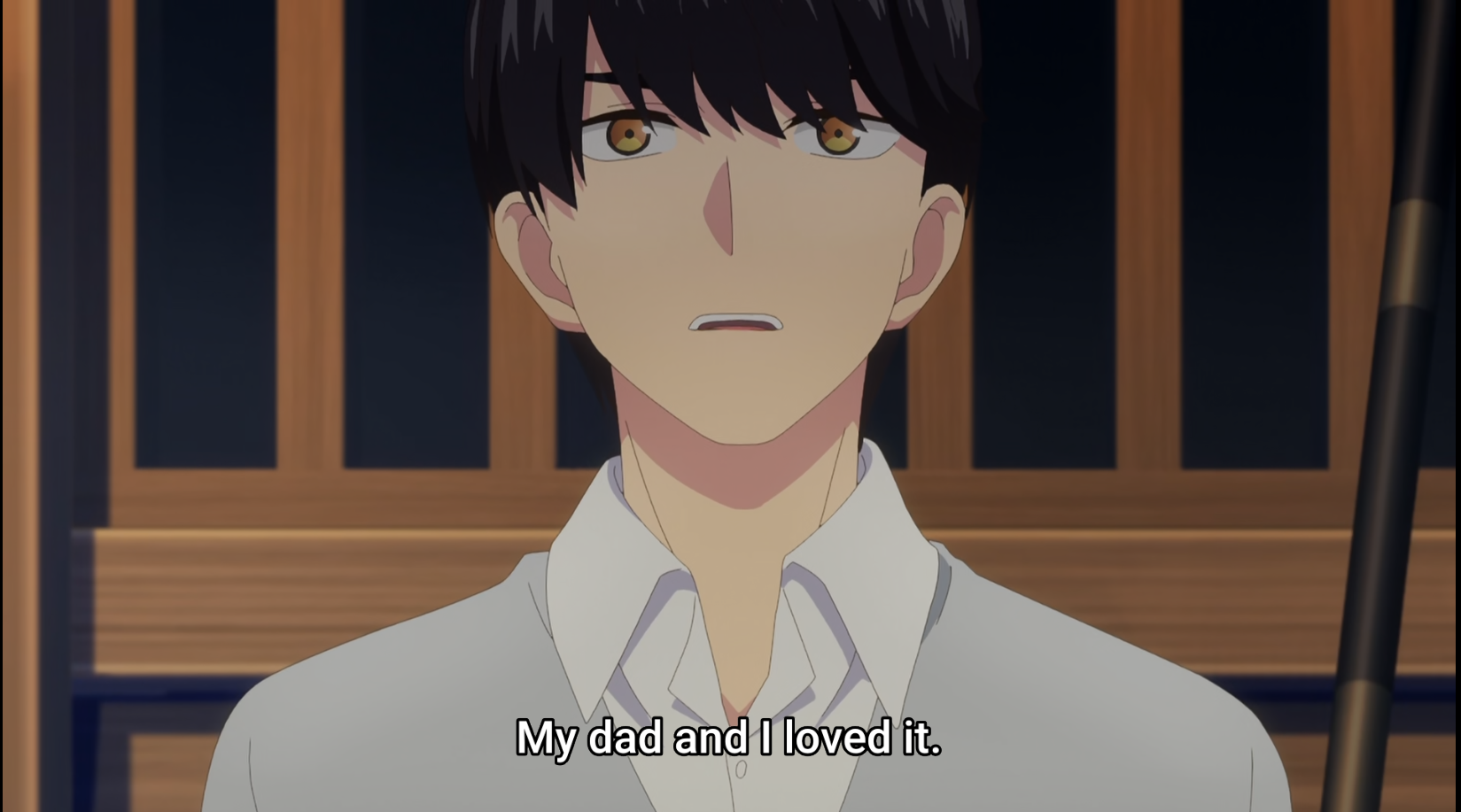According to Yuta (whom I heard is apparently not well regarded in the subreddit r/learnjapanese but eh) in How Anya Speaks Japanese (Spy x Family): You can't address your parents as chichi/haha. Rather, chichi/haha is what you use when you refer to your parents to someone else...
Question 1: Oh wait. Yuta says someone else who is not your family member...so should you/can you/should you not use chichi/haha when talking to full (biological or adoptive) siblings? Half-siblings? Step-siblings (via marriage not adoption)? Cousins?
However I noticed in S02E12 of the anime adaptation of the manga The Quintessential Quintuplets:
The male protagonist Fuutarou says something like 'ore mo/no oyaji' (me and also my dad? or just my dad?) which is translated to 'My dad and I loved it' (The 'it' here is some kind of bread).
Not sure if relevant, but Fuutarou is addressing a non-relative, specifically (S02E12 spoilers)
Fuutarou's friend/classmate/tutee Miku Nakano. They're on an unofficial date. The bread aforementioned is related to the bread in the preceding link.
Question 2: You can't address your parents chichi/haha, but can you refer to your parents as oyaji/otou-san/okaa-san?
- Note: If the spoiler part is relevant, then please explain why.
Question 3: Btw, what's the female/matriarch/mother version of oyaji please?
Question 4: Actually wait I just remembered. There's this scene in S02E02 where 2 quints refer to their dead mom alternatively as 'okaa-san' and then 'haha'. Are they indeed both correct?
The identical quintuplets Nino (older) and Itsuki (younger and actually youngest; also the female protagonist) are arguing. Itsuki says 'Mother would be so sad if she saw us now.' (But since Itsuki says okaa-san instead of okaa-sama, I guess 'mom' is a better translation?) Nino replies 'Let her go already. And quit trying to act like her replacement all the time.'
Some notes: (Also some S02E06 spoilers.)
- The characters in this scene are the 5 quints and their tutor/friend/classmate Fuutarou (the male protagonist).
2. It's actually revealed in S02E06 that Itsuki was the most impacted by their mom's death and continues to be more impacted than the other quints.

